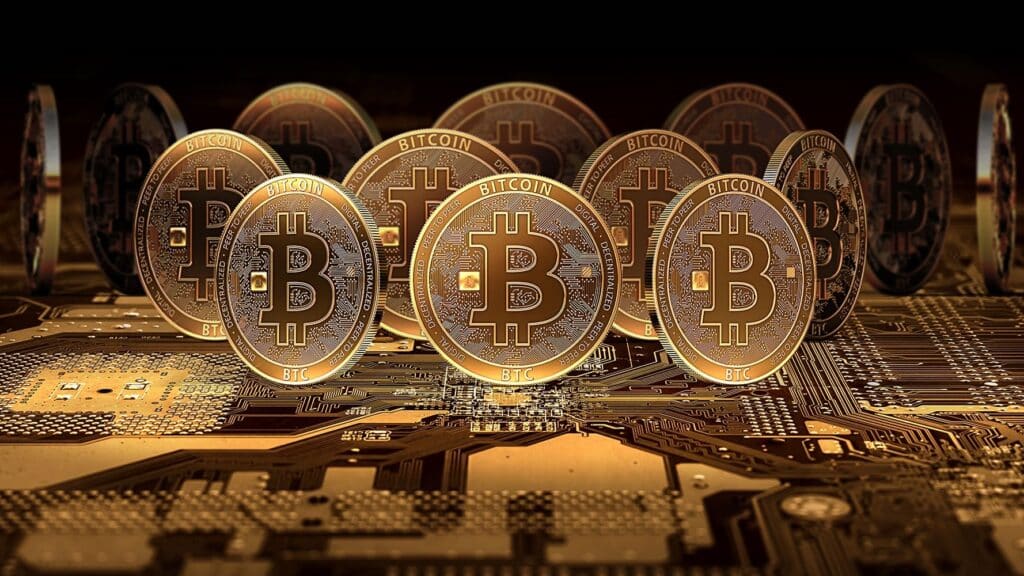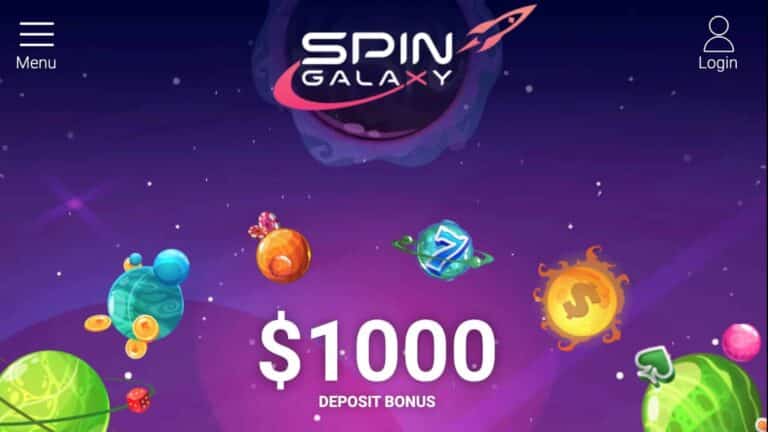Altcoins are reshaping the landscape of online gambling, introducing both opportunities and complexities for players and operators alike. As digital currencies beyond Bitcoin gain traction, their role in online casinos and betting platforms becomes increasingly significant, offering a blend of enhanced privacy, faster transactions, and potentially lower fees, all while navigating a regulatory environment still catching up to the pace of innovation.
Understanding Altcoins and Their Rise in Online Gambling
Altcoins, short for "alternative cryptocurrencies," represent the vast ecosystem of digital currencies that emerged after Bitcoin's groundbreaking introduction. These cryptocurrencies, including Ethereum, Litecoin, and Ripple (XRP), among thousands of others, operate on the same core blockchain technology as Bitcoin but often with variations in their protocols, functionalities, and intended use cases. From their inception, cryptocurrencies have been lauded for their decentralized nature, which promises to remove intermediaries from financial transactions, offering users greater control and autonomy over their funds.
The online gambling industry, always at the forefront of adopting new technologies, was quick to recognize the potential of cryptocurrencies. Traditional online casinos typically rely on conventional payment methods like credit cards, e-wallets, and bank transfers. While these methods are widely accepted, they come with inherent limitations such as processing fees, transaction delays, and geographical restrictions. Cryptocurrencies, and particularly altcoins, present a compelling alternative by addressing many of these pain points. The decentralized and borderless nature of altcoins makes them ideally suited for the global reach of online gambling platforms, allowing for seamless transactions across jurisdictions.
The integration of altcoins into online gambling platforms is not merely about adopting a trendy payment method; it signifies a fundamental shift towards a more streamlined, private, and efficient online gambling experience. For gamblers, this can translate to faster deposits and withdrawals, reduced transaction costs, and enhanced privacy, as cryptocurrency transactions often require less personal information compared to traditional banking methods. For operators, accepting altcoins can broaden their market reach, reduce operational costs associated with payment processing, and attract a tech-savvy player base increasingly comfortable with digital currencies.
Advantages of Using Altcoins in Online Gambling
The allure of altcoins in online gambling stems from a range of distinct advantages that cater to both players and operators, enhancing the overall online casino experience. These benefits extend beyond mere transactional convenience, touching upon aspects of privacy, security, and cost-effectiveness.
Enhanced Privacy and Anonymity: One of the most significant draws of altcoins is the enhanced level of privacy they offer. Unlike traditional payment methods that require users to disclose personal and financial information, altcoin transactions can be conducted with minimal personal data. While not entirely anonymous, as all blockchain transactions are recorded on a public ledger, they are pseudonymous. This means transactions are linked to wallet addresses rather than directly to personal identities, offering a degree of separation that many gamblers find appealing. For players concerned about data security and privacy in their online gambling activities, altcoins provide a valuable alternative to more traceable traditional payment methods.
Faster Transactions: Traditional banking systems can be slow, especially for international transactions, with deposit and withdrawal times often ranging from hours to several business days. Altcoin transactions, leveraging blockchain technology, are processed much faster, often within minutes. This speed is particularly advantageous in the fast-paced environment of online gambling, where players expect immediate access to their funds for betting and quick withdrawals of winnings. The near real-time transaction speeds of altcoins significantly improve the user experience, eliminating the frustrating delays associated with conventional payment methods.
Lower Transaction Fees: Traditional online gambling payment methods often involve fees levied by banks, credit card companies, or e-wallet providers. These fees can accumulate, especially for frequent transactions, eating into a player's bankroll or winnings. Altcoin transactions typically incur significantly lower fees, often a fraction of a percentage or even negligible, depending on the altcoin and the network congestion. This cost-effectiveness is a major advantage, particularly for high-volume gamblers or those who frequently deposit and withdraw smaller amounts. Lower fees mean more of a player's money goes towards gambling or remains as winnings, enhancing the value proposition of using altcoins.
Global Accessibility and Borderless Transactions: Online gambling is inherently a global industry, yet traditional payment methods often impose geographical restrictions and complexities due to varying international banking regulations. Altcoins, being decentralized and borderless, transcend these limitations. They enable players from almost anywhere in the world to transact with online gambling platforms that accept them, without the hurdles of currency exchange fees, international transaction charges, or banking restrictions. This global accessibility opens up online gambling to a broader international audience and simplifies transactions for both players and operators across different jurisdictions.
Increased Security: Cryptocurrency transactions are secured using cryptographic techniques, making them inherently more secure than many traditional online payment methods. Blockchain technology, which underpins altcoins, is designed to be tamper-proof and resistant to fraud. While individual cryptocurrency wallets and exchanges can be vulnerable to hacking, the underlying blockchain transactions are highly secure. This enhanced security reduces the risk of fraud and chargebacks for operators, and provides players with a safer way to manage their gambling funds online.
Popular Altcoins Used in Online Gambling
While Bitcoin pioneered cryptocurrency gambling, a diverse range of altcoins have emerged as popular choices within the online gambling community. Each altcoin offers unique features and benefits, catering to different preferences and priorities of gamblers and casino operators.
Ethereum (ETH): Beyond being a cryptocurrency, Ethereum is a platform for decentralized applications (dApps) and smart contracts. Its robust technology and widespread adoption make it a favored altcoin in online gambling. Ethereum's smart contract capability allows for the development of provably fair gambling platforms, where game outcomes are verifiable on the blockchain, enhancing transparency and trust. Its popularity and liquidity also make ETH a convenient option for both deposits and withdrawals across numerous online casinos.
Litecoin (LTC): Often referred to as the "silver to Bitcoin's gold," Litecoin was created to improve upon Bitcoin's transaction speed. With faster block generation times, Litecoin transactions are quicker and often cheaper than Bitcoin transactions. This makes LTC an attractive option for online gamblers seeking fast and cost-effective deposits and withdrawals. Its established presence and acceptance in the cryptocurrency market also contribute to its popularity in online gambling platforms.
Dogecoin (DOGE) & Shiba Inu (SHIB): Initially started as internet memes, Dogecoin and Shiba Inu have surprisingly gained traction in various sectors, including online gambling. Their appeal often lies in their strong online communities and lower transaction fees. While they may exhibit higher price volatility compared to more established altcoins, their low cost per coin and active community engagement have made them popular for smaller transactions and within certain gambling niches. Some online casinos accept DOGE and SHIB, particularly for players who are comfortable with meme-based cryptocurrencies and seek to engage with these vibrant online communities.
Ripple (XRP): XRP is designed for fast and low-cost international money transfers, aiming to facilitate seamless cross-border payments. While its decentralized nature is debated, its focus on efficient transactions makes it potentially suitable for online gambling, especially for international players. XRP transactions are known for their speed and low fees, aligning with the needs of online gamblers. However, its adoption in online gambling is less widespread compared to Ethereum or Litecoin, and its regulatory status has faced scrutiny in some jurisdictions.
Bitcoin Cash (BCH): Bitcoin Cash was created as a fork of Bitcoin, aiming to address Bitcoin's scalability issues and transaction fees. BCH offers larger block sizes, enabling faster transaction processing and lower fees compared to Bitcoin. For online gambling, BCH presents a viable alternative to Bitcoin, providing faster and cheaper transactions while still benefiting from the Bitcoin brand recognition and infrastructure. Several online casinos accept BCH alongside Bitcoin and other altcoins.
Navigating the Challenges and Risks
Despite the numerous advantages, the integration of altcoins into online gambling is not without its challenges and risks. Both players and operators need to be aware of these potential downsides to make informed decisions and navigate the landscape responsibly.
Volatility of Altcoin Values: Cryptocurrencies, including altcoins, are known for their price volatility. The value of an altcoin can fluctuate significantly in short periods, influenced by market sentiment, news events, and overall cryptocurrency market trends. For gamblers, this volatility presents both opportunities and risks. While the value of winnings held in altcoins could increase substantially, it could also decrease rapidly, potentially diminishing the real value of their earnings. Operators also face currency risk when holding altcoin deposits, requiring them to manage volatility through hedging strategies or immediate conversion to stable currencies.
Regulatory Uncertainty and Compliance: The regulatory landscape for cryptocurrencies and online gambling is still evolving and varies significantly across jurisdictions. Many countries are yet to establish clear legal frameworks for cryptocurrency gambling, leading to uncertainty and potential compliance challenges for operators. Online casinos accepting altcoins must navigate a complex web of regulations related to anti-money laundering (AML), know your customer (KYC) compliance, and gambling licenses. Players also need to be aware of the legal status of cryptocurrency gambling in their jurisdiction to avoid potential legal issues.
Security Risks and Wallet Management: While blockchain transactions are secure, individual cryptocurrency wallets and exchanges can be vulnerable to hacking and theft. Players need to take precautions to secure their altcoin wallets, using strong passwords, enabling two-factor authentication, and considering cold storage (offline wallets) for larger holdings. Operators accepting altcoins must implement robust security measures to protect player funds and prevent cyberattacks. The responsibility for securing cryptocurrency assets rests heavily on both players and operators, requiring a higher level of technical awareness and security consciousness compared to traditional payment methods.
Limited Acceptance Compared to Traditional Methods: While altcoin adoption in online gambling is growing, it is still not as universally accepted as traditional payment methods like credit cards or e-wallets. Not all online casinos accept altcoins, and even those that do may only support a limited selection of altcoins. This limited acceptance can restrict player choice and require them to convert between different currencies, potentially incurring conversion fees. As the cryptocurrency market matures and regulations become clearer, wider adoption of altcoins in online gambling is expected, but currently, it remains less ubiquitous than traditional payment options.
Complexity for New Users: For individuals new to cryptocurrencies, using altcoins for online gambling can present a steeper learning curve compared to familiar payment methods. Understanding cryptocurrency wallets, exchanges, transaction processes, and security best practices requires some technical knowledge and effort. While user-friendly interfaces and educational resources are becoming more prevalent, the initial complexity can be a barrier for some gamblers. Online casinos catering to altcoin users often provide guides and support to help new users navigate the cryptocurrency aspects of gambling.
The Future of Altcoins in Online Gambling
The trajectory of altcoins in online gambling points towards continued growth and integration, driven by the inherent advantages they offer and the evolving landscape of both cryptocurrency and online gaming industries. Several trends and factors suggest a promising future for altcoins in this sector.
Increasing Adoption by Online Casinos: As awareness and acceptance of cryptocurrencies grow, more online casinos are expected to integrate altcoins into their payment systems. The benefits of faster transactions, lower fees, and broader market reach are compelling incentives for operators to embrace altcoins. Early adopter casinos that have integrated altcoins often report attracting a new segment of players and gaining a competitive edge. This trend is likely to accelerate as the regulatory environment becomes clearer and cryptocurrency infrastructure matures.
Technological Advancements and Scalability Solutions: Ongoing technological developments in blockchain technology are addressing some of the limitations of early cryptocurrencies, such as scalability and transaction speed. Layer-2 solutions and protocol upgrades are enhancing the efficiency and throughput of altcoin networks, making them even more suitable for high-volume online gambling transactions. These advancements will further improve the user experience and reduce transaction costs, making altcoins an even more attractive option for both players and operators.
Evolving Regulatory Landscape: As governments and regulatory bodies worldwide grapple with the rise of cryptocurrencies, the regulatory landscape is gradually becoming more defined. While uncertainty persists in some jurisdictions, others are developing frameworks to regulate cryptocurrency businesses and activities, including online gambling. Clearer regulations will provide greater legal certainty for operators, encouraging wider adoption of altcoins in regulated online gambling markets. Regulatory clarity will also enhance consumer protection and build trust in cryptocurrency gambling.
Integration with Metaverse and Web3 Gambling: The emergence of the metaverse and Web3 technologies presents new frontiers for online gambling, and altcoins are poised to play a central role in these decentralized virtual worlds. Metaverse casinos and Web3 gambling platforms are leveraging blockchain and cryptocurrencies to create immersive and transparent gambling experiences. Altcoins, as native digital currencies of the internet, are naturally suited for these environments, facilitating seamless transactions and powering decentralized gambling economies. The growth of metaverse and Web3 gambling could further accelerate the adoption and utility of altcoins in the broader gambling industry.
Growing Player Preference for Cryptocurrency Gambling: A segment of online gamblers is increasingly drawn to the privacy, speed, and cost-effectiveness offered by cryptocurrencies. Tech-savvy players, and those particularly concerned about online privacy, are more likely to prefer online casinos that accept altcoins. As cryptocurrency awareness and adoption expand among the general public, player demand for cryptocurrency gambling options is expected to rise. Online casinos that cater to this growing preference are likely to gain a competitive advantage and attract a loyal player base.
Conclusion: Altcoins – A Transformative Force in Online Gambling
Altcoins are not merely a fleeting trend in online gambling; they represent a transformative force with the potential to reshape the industry in fundamental ways. By offering enhanced privacy, faster transactions, lower fees, and global accessibility, altcoins address many of the pain points associated with traditional online gambling payment methods. While challenges such as volatility, regulatory uncertainty, and security risks remain, the advantages of altcoins are increasingly compelling for both players and operators. As technology advances, regulations evolve, and player preferences shift, the role of altcoins in online gambling is poised to expand, ushering in a new era of digital currency-powered gaming. For gamblers, understanding the nuances of altcoins and their implications in online gambling is becoming increasingly important to navigate this evolving landscape and leverage the opportunities they present while mitigating potential risks. The future of online gambling is undeniably intertwined with the continued development and adoption of cryptocurrencies, with altcoins playing a pivotal role in this transformation.
External Resources:



